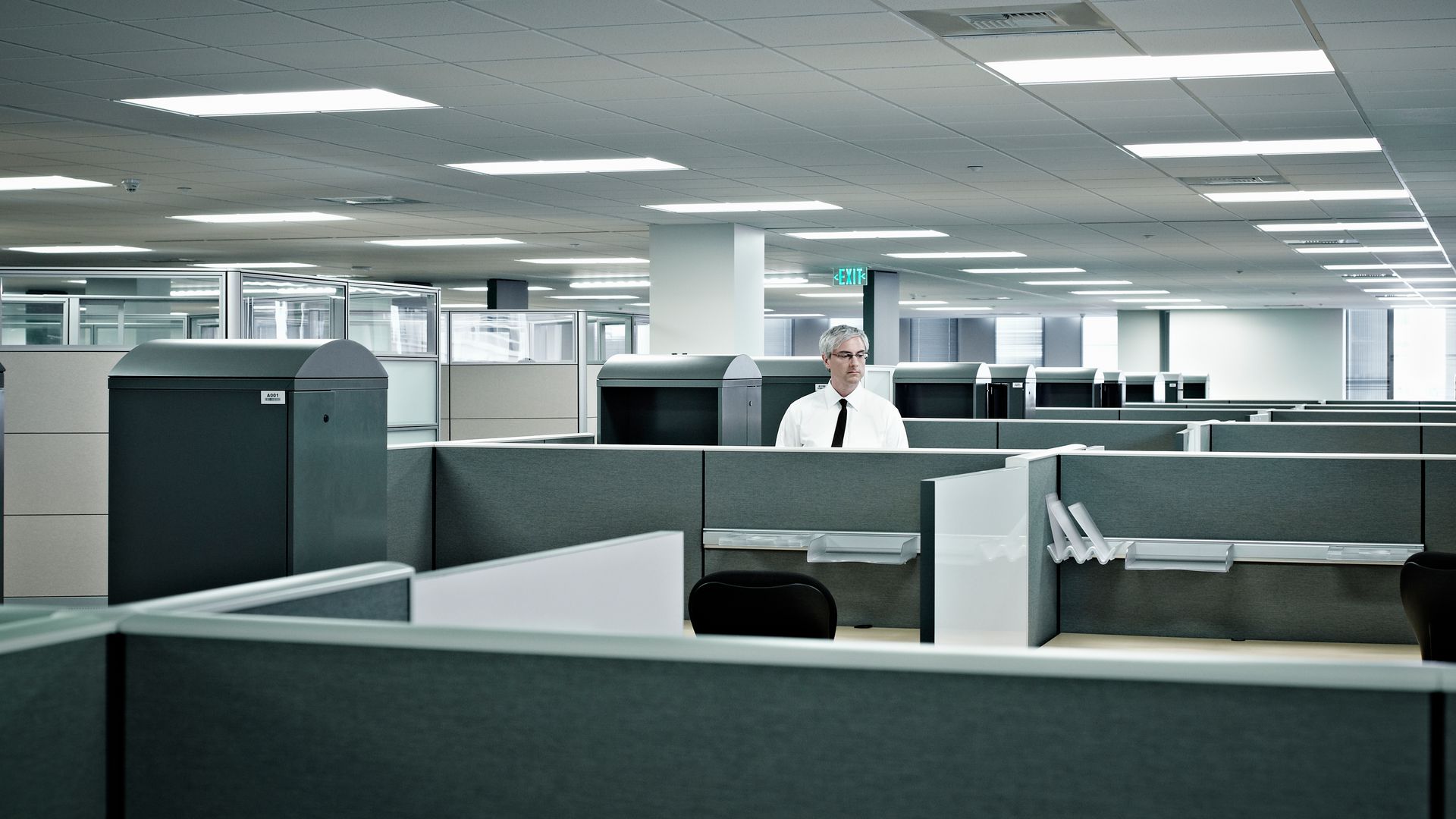
[KARAH RUCKER]
AMERICANS ARE LONELY – SO MUCH SO THAT THE SURGEON GENERAL HAS DECLARED LONELINESS AN EPIDEMIC.
AND EVEN IF YOU THINK YOU GET YOUR DAILY DOSE OF HUMAN CONTACT WHEN YOU GO TO WORK… THAT MIGHT NOT BE ENOUGH.
A NEW STUDY SHOWS THAT JUST WITHIN THE LAST MONTH… 86 PERCENT OF WHITE COLLAR WORKERS BETWEEN THE AGES OF 18 AND 34 SAID THEY’VE FELT LONELY OR ISOLATED AS A RESULT OF THEIR JOB ROLE…
AND 76 PERCENT OF THOSE 35 AND OLDER SAID THEY FELT THAT WAY.
PEOPLE CONSIDERED WHITE COLLAR ARE WORKERS IN OFFICE SETTINGS – LIKE CLERICAL, ADMINISTRATIVE, MANAGERIAL, AND EXECUTIVE ROLES – AND TEND TO EARN AN ANNUAL SALARY.
FOR COMPARISON, BLUE COLLAR WORKERS OFTEN HAVE TO DO MANUAL LABOR AND GET PAID BY THE HOUR OR BY JOB.
WHILE THE RISE IN REMOTE AND HYBRID WORK MODELS CAN PLAY A ROLE IN LONELINESS… EXPERTS SAY THE TREND OF WHITE-COLLAR WORKERS FEELING LONELIER HAS MORE TO DO WITH TECHNOLOGY AND LACK OF PROPER SUPPORT FROM THEIR EMPLOYER.
IN FACT – THE STUDY FOUND 65 PERCENT OF WHITE-COLLAR WORKERS BELIEVE THEIR EMPLOYERS HAVE A RESPONSIBILITY TO ADDRESS LONELINESS IN THE WORKPLACE.
THE REPORT SHOWS LONELY STAFFERS ARE FOUR TIMES MORE LIKELY TO BE DISSATISFIED WITH THEIR CURRENT CAREERS…
AND THREE TIMES MORE LIKELY TO FEEL THEY CAN’T BE THEIR AUTHENTIC SELVES AT WORK.
EMPLOYEES STRUGGLING WITH LONELINESS ARE ALSO ONLY HALF AS LIKELY TO FEEL POSITIVE ABOUT THEIR CAREER PROSPECTS – COMPARED TO WORKERS WHO SAY THEY DON’T FEEL LONELY.
THE RESEARCHERS WHO PUT THE STUDY TOGETHER SAY THERE *ARE* WAYS TO EMPLOYERS CAN HELP COMBAT LONELINESS IN THE WORKPLACE – INCLUDING GIVING EMPLOYEES MORE OPPORTUNITIES TO INTERACT IN PERSON… BEING TRANSPARENT… TRAINING MANAGERS TO LEAD WITH EMPATHY AND RESPECT… AND CREATING A COLLABORATIVE AND SUPPORTIVE CULTURE.











